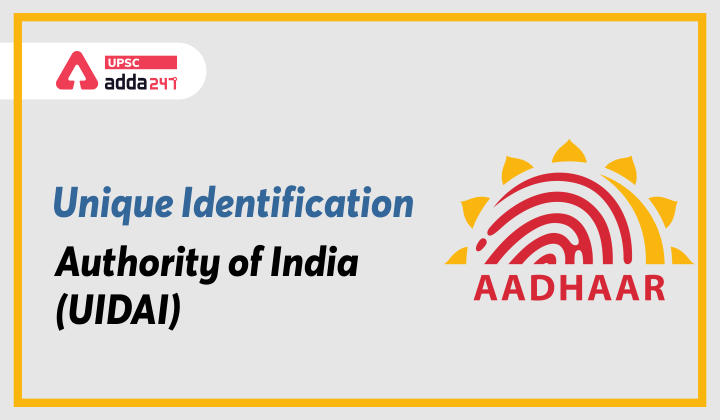Table of Contents
Unique Identification Authority of India- Relevance for UPSC
- GS Paper 2: Indian Constitution- Statutory, regulatory and various quasi-judicial bodies.
Unique Identification Authority of India- Context
- Recently, UIDAI’s IT systems were down according to many users who were unable to update their Aadhaar particulars to correct mismatches with other identity documents.
- The Unique Identification Authority of India (UIDAI) acknowledged that there were “some intermittent service interruptions” in its systems over the last week and attributed them to “an essential security upgrade”.
Unique Identification Authority of India- Key Points
- About: UIDAI is a statutory authority established under the provisions of the Aadhaar (Targeted Delivery of Financial and Other Subsidies, Benefits and Services) Act, 2016 by the Government of India.
- Earlier, UIDAI was created through a government notification in 2009 and was functioning as an attached office of the then Planning Commission (now NITI Aayog).
- Parent Ministry of UIDAI: It functions under the Department of Electronics & Information Technology (DeitY) of the then Ministry of Communications and Information Technology.
- Objective of UIDAI: To issue Unique Identification numbers (UID), named as “Aadhaar”, to all residents of India
Mandate of UIDAI
- Under Aadhaar Act 2016, UIDAI is responsible for
- Aadhaar enrolment and authentication, including operation and management of all stages of Aadhaar life cycle
- Developing the policy, procedure, and system for issuing Aadhaar numbers to individuals and
- Perform authentication and the security of identity information and authentication records of individuals.
Unique Identification Authority of India (UIDAI)- Key Functions
- UIDAI aims to establish a digital infrastructure in the country by providing each resident of the country with a unique identification number- Aadhar. In this context, UIDAI’s key functions are-
- To provide for good governance, efficient, transparent, and targeted delivery of subsidies, benefits, and services.
- Ensure availability, scalability, and resilience of the technology infrastructure.
- Build a long-term sustainable organization to carry forward the vision and values of the UIDAI.
- To make rules and regulations in line with the Aadhaar Act.
- To ensure compliance with the Aadhaar Act by all individuals and agencies in letter and spirit.



 TSPSC Group 1 Question Paper 2024, Downl...
TSPSC Group 1 Question Paper 2024, Downl...
 TSPSC Group 1 Answer key 2024 Out, Downl...
TSPSC Group 1 Answer key 2024 Out, Downl...
 UPSC Prelims 2024 Question Paper, Downlo...
UPSC Prelims 2024 Question Paper, Downlo...







